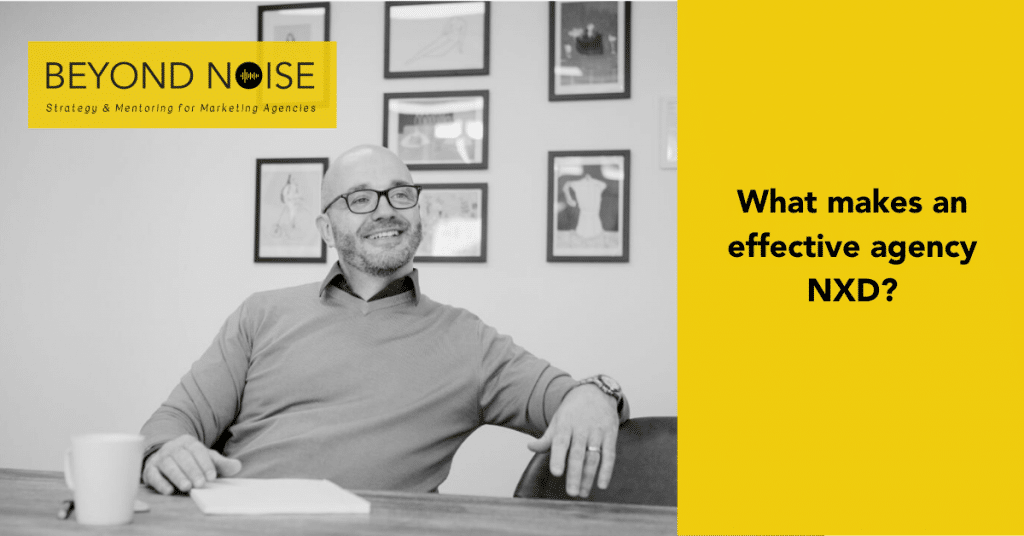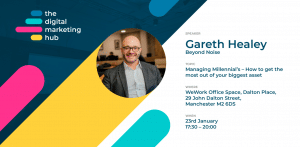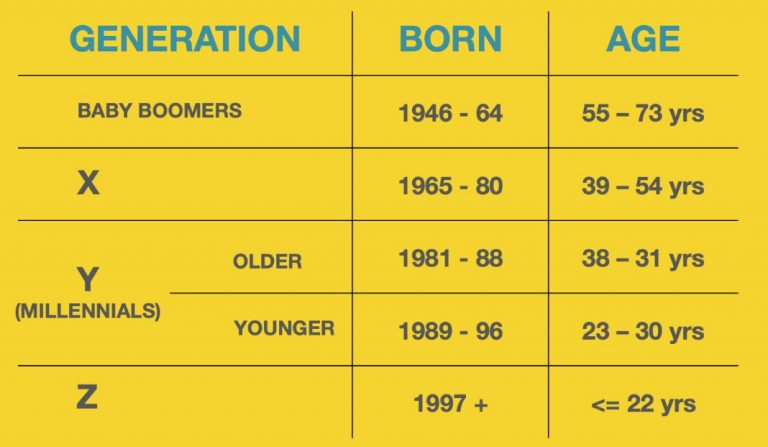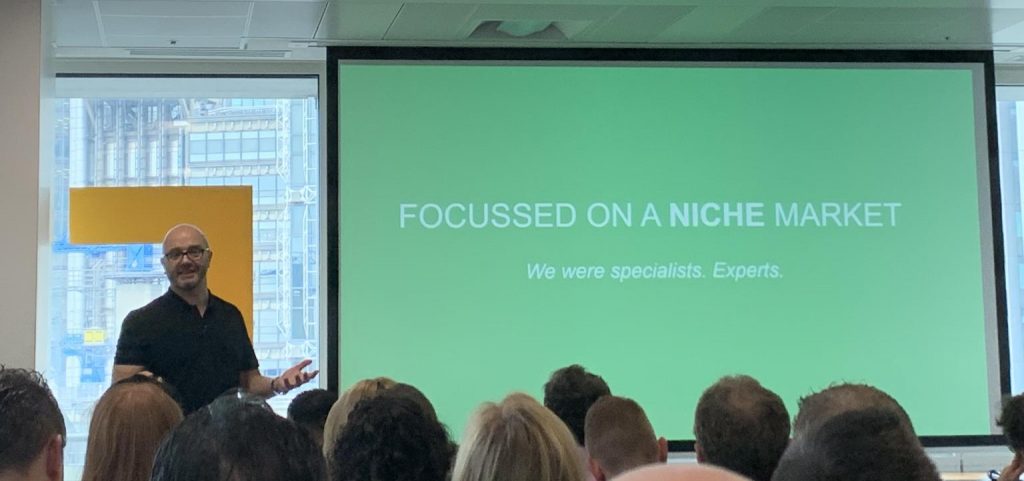What is an agency NXD?
Agency NXD, Non-Executive Director, Non-Exec, NED. Whatever terminology they use, many agencies are now utilising the skills of an experienced person who is not directly involved in the running of the business but supports the directors in its development.
NXDs are not the sole preserve of the agency sector of course, far from it. The role of an NXD originated and is widely used in larger companies and in particular PLCs across sectors. Indeed, an independent director who oversees the executives’ management of the company is a key requirement for many organisations whose shares are publicly traded.
Historically, these NXDs were very experienced retired or semi-retired former executives. Increasingly, NXDs are now younger and either employed as an executive at another company, running their own business or even operating as a portfolio NXD.
There are many benefits to having an NXD. They are particularly highly prized in larger companies. Stakeholders can take comfort in the fact that there is one, or often several, NXDs monitoring and challenging the activity of the executive team. As NXDs are not full-time they are comparatively cheaper and can act as a sounding board for directors and a safety net for non-director shareholders.
The role of an NXD
The role of an NXD is to hold the executives to account for the delivery of the business objectives.
NXDs are focused on 2 areas; governance and growth. Whilst good governance is crucial to any organisation. In a smaller business, and in most independent agencies, it is the pursuit of growth that usually takes precedence.
Running any business can be exhilarating, fulfilling, challenging and frustrating. When you’re running an agency you can experience all these emotions in a single afternoon!
Its a cliche of course but it can be lonely at the top of an organisation. As an agency principal, even if you’re not a sole director, it can feel like you have nobody to turn to for advice or counsel. Balancing the demands of your clients and your people can seem like an impossible task.
Having a supportive agency NXD who understands your challenges and has walked in your shoes can be of great asset to your business.
The characteristics of a good NXD
NXDs are usually selected for their personal qualities, experience and specialist knowledge. Its vital that they not only possess wisdom, but are familiar with current trends and developments.
Some of the key characteristics of good NXDs are:
– Independence – it’s crucial an NXD has a strong relationship with their exec colleagues but retaining a level of independence is key. It not only provides objective scrutiny but enables the NXD to maintain a “helicopter view”. They must not get too close to the business so that they can’t see the bigger picture. This is usually why the directors need an NXD in the first place.
– Challenging but supportive – the NXD must be able to probe and challenge without creating conflict. They need to be constructive and diplomatic so they can ask difficult questions whilst offering support and guidance on problematic issues. Mutual trust is vital.
– Courage and integrity – NXDs must have strong principles and the courage to stand up and say if they feel something is wrong or risky. Despite being engaged by the business, they require the courage to disagree.
· Great communication skills – they must be able to communicate complex ideas clearly and without being dictatorial. They should command respect but listen and absorb information as much as they talk and have input.
– Deep understanding of the business – whether they have industry experience or not, they need to quickly understand the products/services, the culture, the management team and the customer base.
– Breadth of experience – we are faced with more operational issues than ever before. Reputation management, health and safety, ethics, social responsibility, risk and technology are all vital areas to observe when running a business. Companies need NXDs with specific knowledge and experience to frame discussions around these areas.
My own experience
We had a total of 6 people who operated as our agency NXD over the 15 years I was running my agency. A number of our NXDs had agency experience, others had very little agency knowledge at all. At the time, this was a conscious decision on our part. We wanted to work with people who had different perspectives. This included other agency experience but also client-side and similar businesses operating in different sectors.
Looking back, I consider the people with agency experience to have been more effective as they hit the ground running and needed less context around some of the issues we discussed.
We chose to work with one NXD at a time, but we could have appointed more than one person. In hindsight, I think this would have further supported and accelerated our growth. That said, we were in a fortunate position. Not every agency has the ability to invest in one agency NXD, never mind two or more.
The benefits of an agency NXD
In addition to the benefits to the agency outlined above, one of the key things myself and my business partners wanted from an agency NXD was personal growth. We recognised that even if you are not the sole director, leading an agency can still be a lonely role. It can also be a hard position from which to achieve progress in personal development. You’re often fire-fighting and switching your attention between interacting with clients and staff. It can leave little time or outlet for you to develop your own skills.
I’m a believer that you can learn something every day from anybody, but even if you are working with incredible people as I was, there is a massive benefit to bringing in external knowledge, experience and opinion. It’s not just about expanding the gene pool though. You can get very comfortable and familiar with your business partners and work colleagues. Too comfortable. Challenging them and yourself to improve your performance in the agency can become harder as time goes on.
When we sat down in a board meeting it was hard for us to challenge each other if certain actions hadn’t been completed. We usually knew what had taken priority instead and invariably we ourselves were in a similar situation.
With an NXD in attendance, we knew that they wouldn’t be aware or concerned by the reasons why certain objectives hadn’t been met. We all raised our game when it came to these meetings as we knew an external person was attending and we wanted to ensure we continued to make a good impression on them.
Thinking back to the non-execs we used, whilst they all brought different perspectives, support and additional knowledge to the table, the real benefit for us as directors of an agency was the added accountability they instilled in the business.
This was the real value I got out of working with an agency NXD.
Do you need an agency NXD?
If you’re agency owner considering working with an NXD, I would ask yourself 3 questions:
1. Why do I need an agency NXD?
2. What benefits do I want them to bring to the agency?
3. What sort of person do I want to work with?
The reality is nobody needs an agency NXD. They need somebody to help the problems they are facing.
I see a lot of agency owners considering agency NXDs as a new business channel. Independent directors can bring a larger network into your agency and this can, in theory, bring new client opportunities. In reality, I’ve never seen this really bear fruit. If this is the primary reason to appointing an agency NXD then I would think about the position again.
No matter what level of experience you have, there is always an opportunity to learn from others. Whilst an agency NXD is likely to have more experience than you, even if they don’t, they will definitely have different experiences than you. That said, it’s vital you think through and articulate what value you want them to bring to your business. How will you – and they – measure their success?
As with all recruitment, nobody really wants additional headcount. You want the value that a person can bring, not the role itself. Good chemistry is crucial though. You must connect and enjoy working with the agency NXD as much as you do the other members of the senior team.










